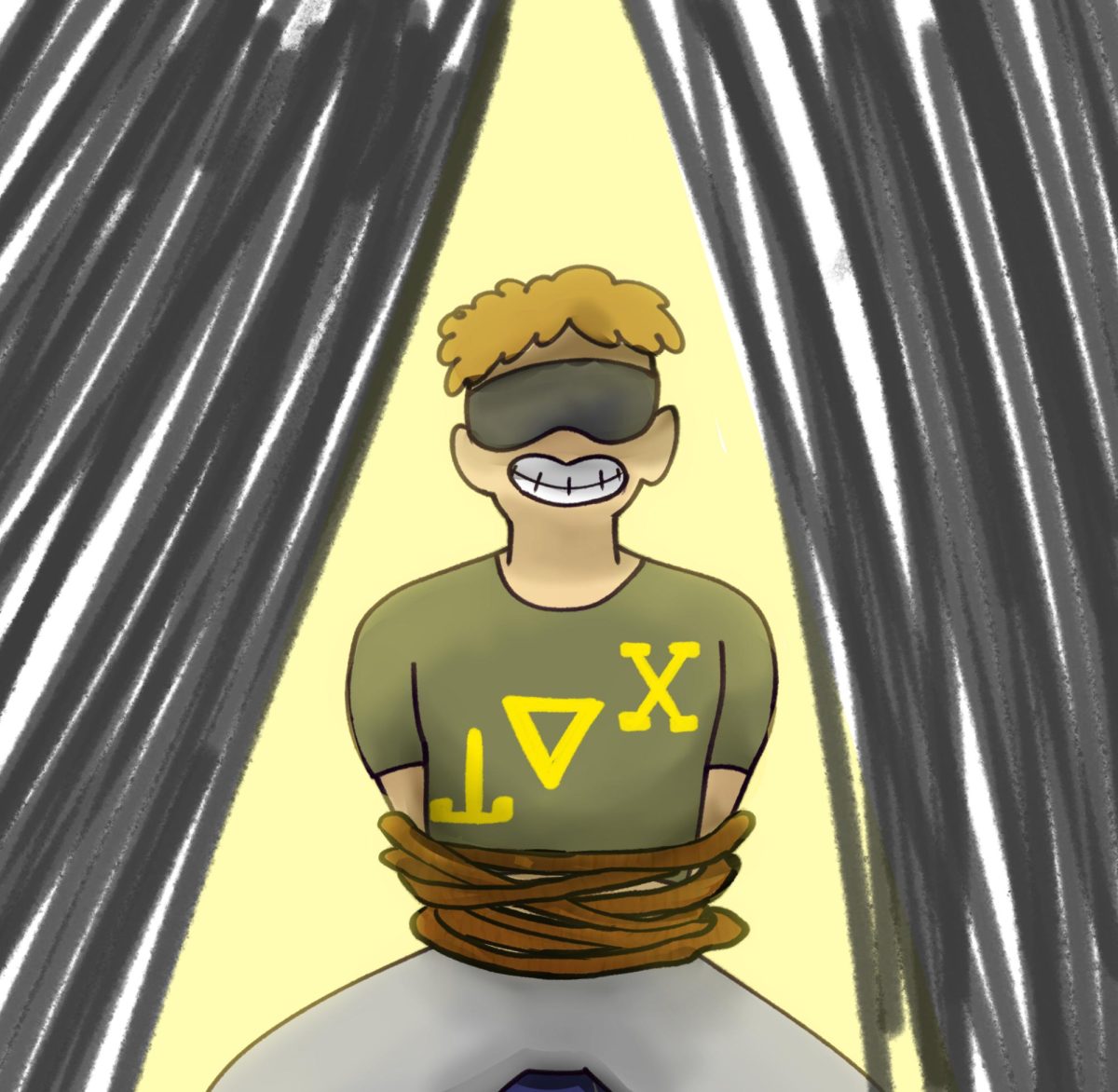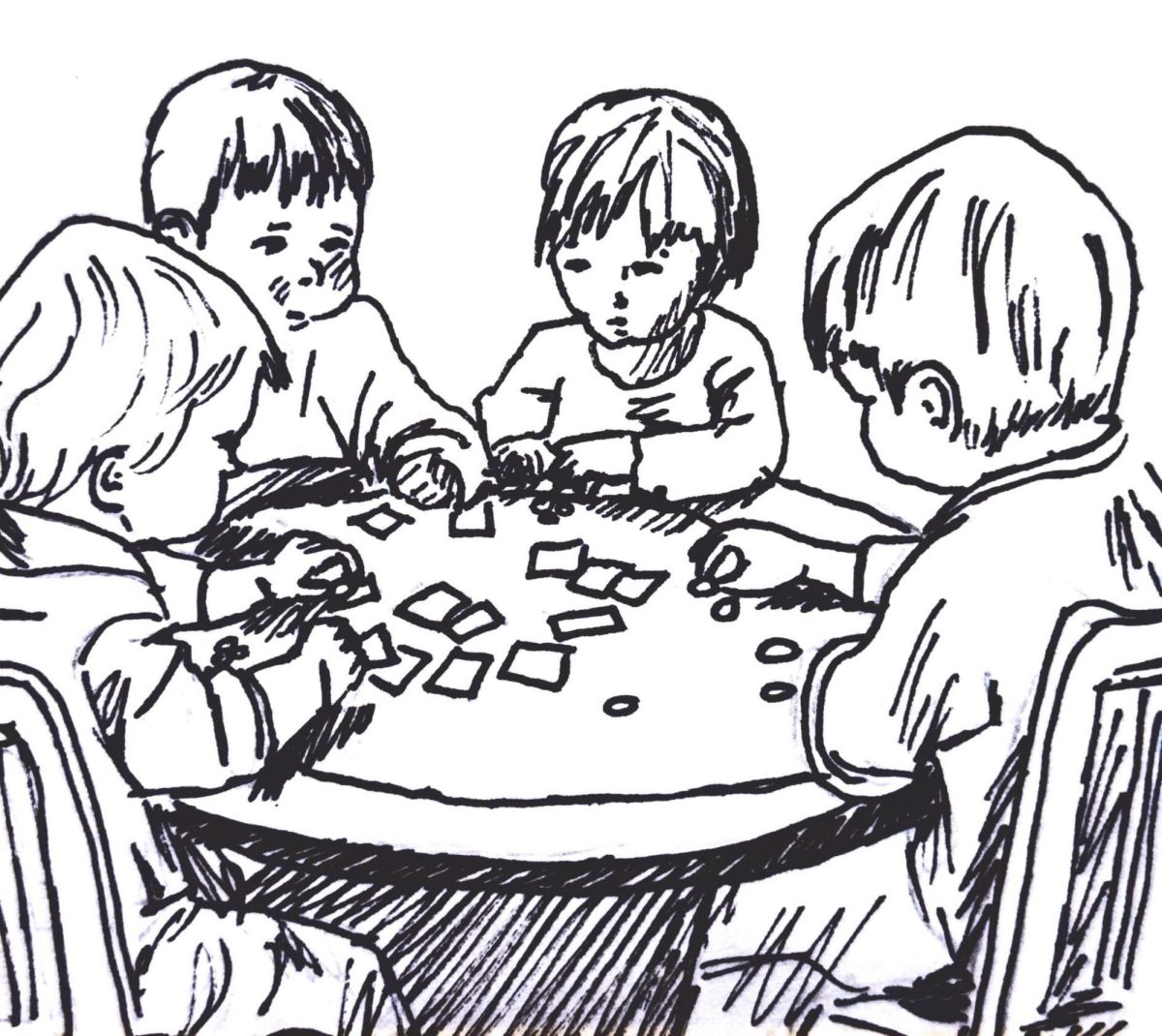Illustration by Andrea Nebhut
If you got into Trinity, chances are you were at the top of your class in high school. Usually, you could do well in school just by paying attention in class, and you didn’t have to study much for tests. I was one of those students who showed up to their first day at Trinity, wide-eyed and innocent, expecting school to continue to come fairly easily for me for the next four years.
However, every Trinity student reading this right now is probably laughing at least a little because you know the truth: academics at Trinity are extremely demanding and competitive, and they have contributed to an environment that has both helped and hurt me as a student. For the most part, I believe that this environment has been beneficial for my growth into a more organized and dedicated student. I have been forced to learn how to teach myself concepts, figure out the most productive way to study and balance heavy workloads, which I feel has prepared me (if not over-prepared me) for what comes after undergrad.
The people at Trinity are incredibly passionate and motivated about their work, which has inspired me to work towards what I am passionate about as well. Additionally, I have been given opportunities to research and explore my interests that would not necessarily have been available at other institutions.
“Trinity prepares you for the real world, where you have to problem-solve difficult issues on your own,” wrote junior neuroscience major Devon Patel via email. “Trinity is difficult, but it is worth it because the greatest amount of growth comes from working through problems yourself or with others and not being told the answer right away.”
I will always be thankful for the experiences that Trinity has given me and how it has helped me grow. However, there are characteristics of the academic rigor at Trinity that have hindered growth rather than encouraged it. I have spent a great deal of my time at Trinity believing to my core that I was not intelligent enough to even attend college, leading to significant self-esteem issues. Rather than helping me to conquer this imposter syndrome, many students and some faculty actively contributed to it, making me feel inadequate and unmotivated.
It becomes difficult to continue to put effort into courses you are constantly told that you are not smart enough to take. Rather than recognizing that people learn at different rates, people who were in charge of helping me learn assumed that those who did not grasp concepts immediately should be left behind. While I recognize the realities of “weed-out” classes, I have seen too many highly intelligent, capable individuals completely crushed by the “Trinity system,” and it breaks my heart that their takeaway was that they weren’t smart enough.
High amounts of pressure naturally create competition, and while a certain amount of competition is healthy, I have found that many Trinity students allow competitiveness to engulf them in a negative way. All I will say is that you can absolutely succeed in your chosen path without having to step on or put down others to get there. At the end of the day, having a network of people who will actively help and look out for each other is far more productive than an “every man for himself” attitude.
The general consensus at Trinity seems to be that life should begin and end with academics. Both professors and fellow students have often made it very clear that if you dedicate any amount of time to anything other than school, that you are inherently lazy and do not care about your courses. This has been ingrained so deeply in my mind that I have quite literally felt guilty for taking breaks from schoolwork to eat or work out (i.e., basic self-care activities that are necessary for survival).
“I’ve had professors and advisers doubt my ability to maintain academics and athletics,” said senior Andy Garza, a biology major and a track and field athlete. “And it can be incredibly discouraging to receive advice that entails letting go a piece of your life that maintains your happiness when dealing with Trinity’s workload.”
Through this all, I have found amazing friends, both within and outside of my major, who have formed an incredible, strengthening support system. Crucially, there have also been several faculty members who went above and beyond to help me when they didn’t have to and who believed in me when I didn’t even believe in myself. One of the most important things to learn is that although you are working towards an individual degree, by no means should you be expected to navigate the difficulties you face along the way alone.
Trinity University has pushed me in many ways to become capable of things I never even expected. The person and student I have become as a result of this are almost unrecognizable from who I was at the beginning of my freshman year.
Although I believe that Trinity should continue to set high expectations for their students, I feel that I could have been able to become a successful student much earlier on in my undergraduate education had some of the negative side effects of the intense academic pressure been addressed. Trinity’s slogan is “Learn. Grow. Become,” and I encourage Trinity to learn from both its students and itself and grow into a more supportive experience for all.












Nihil Patel • Sep 28, 2019 at 3:38 pm
Actually, I’m laughing because I was neither at the top of my class in high school nor someone who could learn and get good grades with minimal effort. That’s the funniest joke I’ve heard since watching “Chernobyl.”